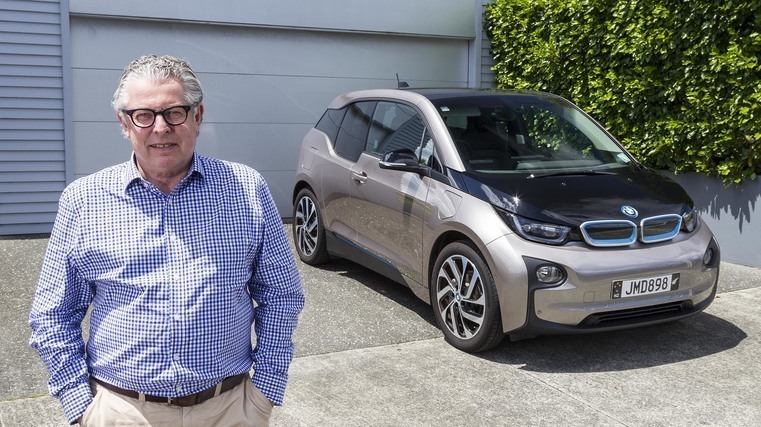Call to speed up EV buying

Drive Electric, a not-for-profit that wants electric vehicle (EV) ownership in New Zealand to be mainstream, has released five key policies it is encouraging the next government to adopt.
As the general election looms in September, the organisation has released an EV discussion document and chairman Mark Gilbert, pictured, has written to all political parties outlining its wishes.
Drive Electric says its policy ideas target road transport, which is the second largest source of emissions in New Zealand, and aims to help meet the targets set by the Zero Carbon Act.
“To meet New Zealand’s climate ambitions we will need to see at least 250,000 new EVs on the roads by 2025, and for this trend to continue through to 2030,” it says in a statement.
“Active and public transport will also form an important part of a future transport system that is safe, healthy, accessible, resilient and decarbonised.”
The key policy platforms set out by the organisation are:
1. Develop a bi-partisan pathway for the transport sector to deliver New Zealand’s climate change objectives
2. Encourage businesses to purchase EVs for their fleets
3. Government fleets to demonstrate leadership on EV use
4. Make New Zealand a globally attractive market for EVs
5. Encourage New Zealanders to move to EVs.
Gilbert’s letter to political parties urges the number one suggestion be considered as a key policy item in the lead up to the election. He also explains Drive Electric’s ambitions to increase the number of EVs and reduce the volume of petrol and diesel vehicles coming into the country.
“We are sharing this policy document with you, so that it is considered during policy discussions leading up to the election and can be incorporated in the policy platform of the next government,” he writes. “Drive Electric represents the complete e-mobility ecosystem and is committed to support the elected government and agencies to make this transition happen.”
Many benefits
Drive Electric’s members come from across the e-mobility ecosystem, including electricity companies, car manufacturers and finance companies. The policies were devised over four months by members, supported by key stakeholders and external experts, including investment consultant Dr Paul Winton, economist Shamubeel Eaqub, and sustainability consultant James Walker.
Gilbert says increasing the number of EVs on our roads will benefit the environment and consumers may also make substantial savings.
“New Zealand must reduce emissions by around 60 per cent by 2030 to stay within 1.5 degrees of warming, the target contained in the Zero Carbon Act,” he explains. “Road transport is the second largest source of emissions in New Zealand.
“In New Zealand the light fleet constitutes more than 90 per cent of the travel on New Zealand roads. Therefore, e-mobility is an essential part of our transport future, and New Zealand is ideally suited given our high proportion of renewable energy. We need a bi-partisan target and pathway to create certainty and guide the investment in e-mobility.
“For many people a car is their first or second biggest asset. With emissions targets that need to be met, and automotive technology shifting towards emissions-free, the time is now to plan for a future New Zealand that embraces e-mobility.
“There are many advantages to this, New Zealand will be less reliant on foreign oil, there will be a reduction of air pollution and over time families will save money spent on fuel and operating costs of vehicles. We will also avoid becoming a dumping ground for second-hand fossil fuel vehicles, as other countries move towards emissions-free vehicles.”
‘Realistic’ target
Winton, founder of climate action group the 1.5 Project, says the target of having 250,000 EVs in the fleet by 2025 is a realistic prospect. There were 21,098 EVs in New Zealand at the end of June, according to the Ministry of Transport.
“If New Zealand was to achieve EV adoption rates similar to what Norway has today for new-to-fleet vehicles by 2025, this would result in 250,000 EV in the light fleet,” he adds.
“The transition for New Zealand will be easier than when Norway started 10 years ago. EVs are becoming less expensive and more capable. By 2025 there will be no clear reason for consumers or businesses not to buy EVs. To buy a petrol or diesel vehicle in 2025, would be to buy a car that is more expensive at the outset, more expensive to run and repair, has a shorter lifespan, performs worse, with higher emissions.”





